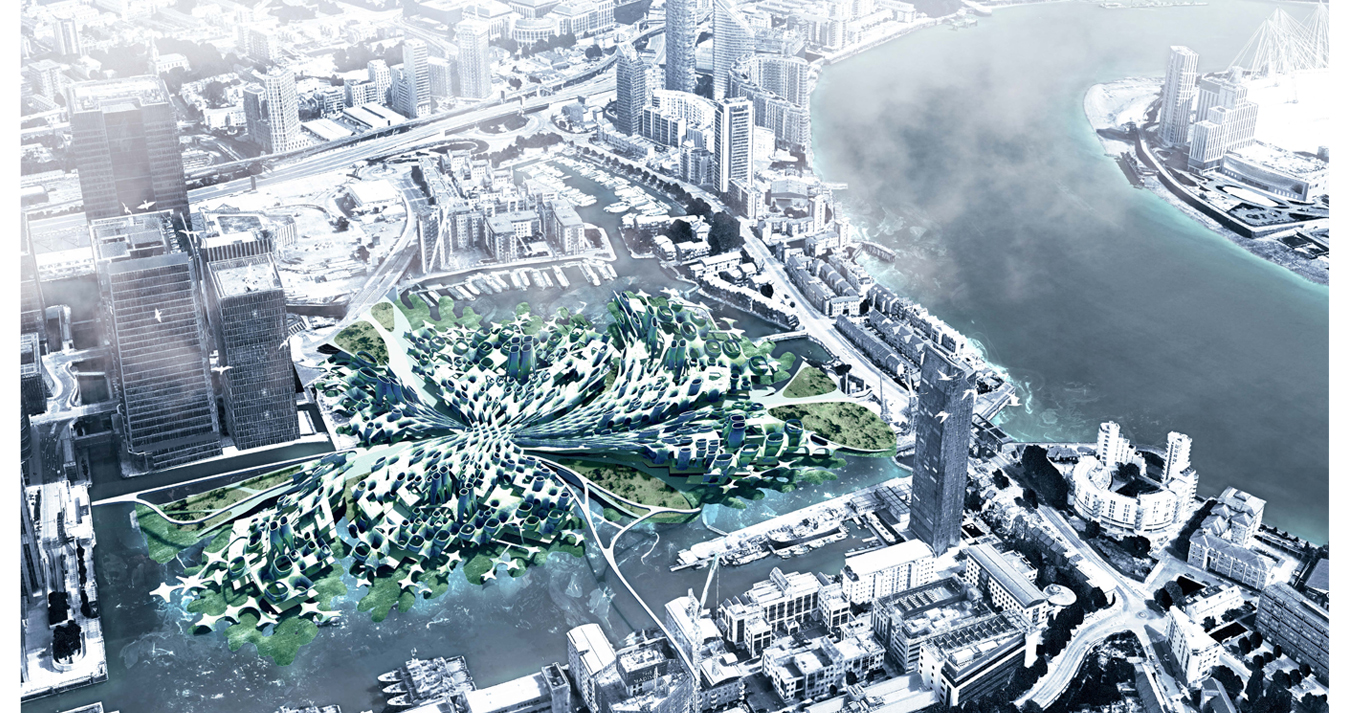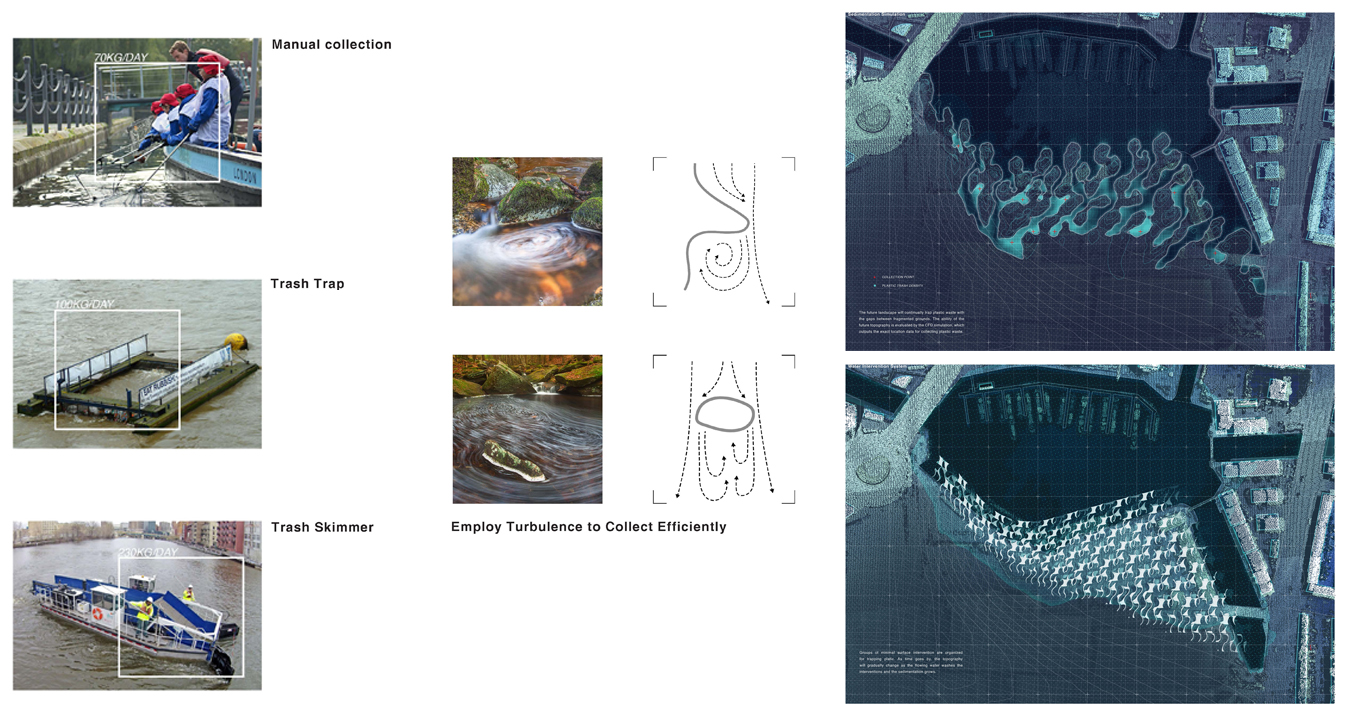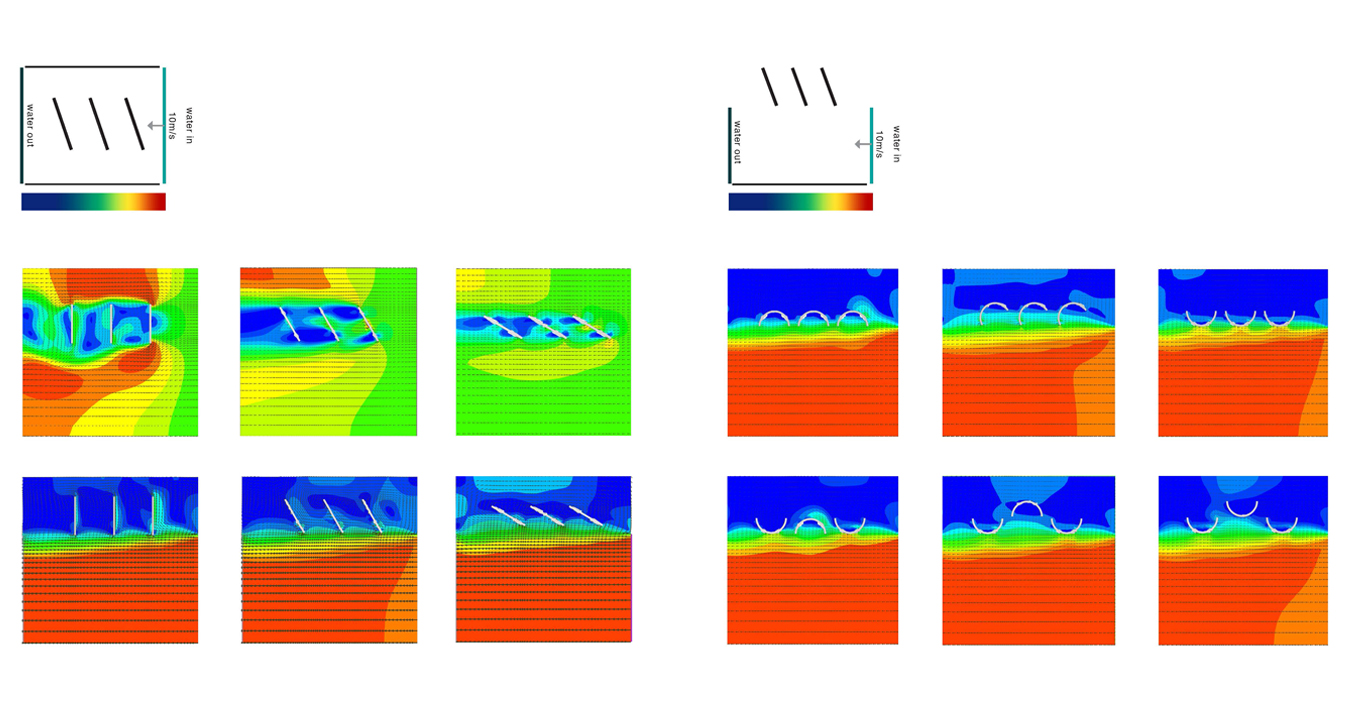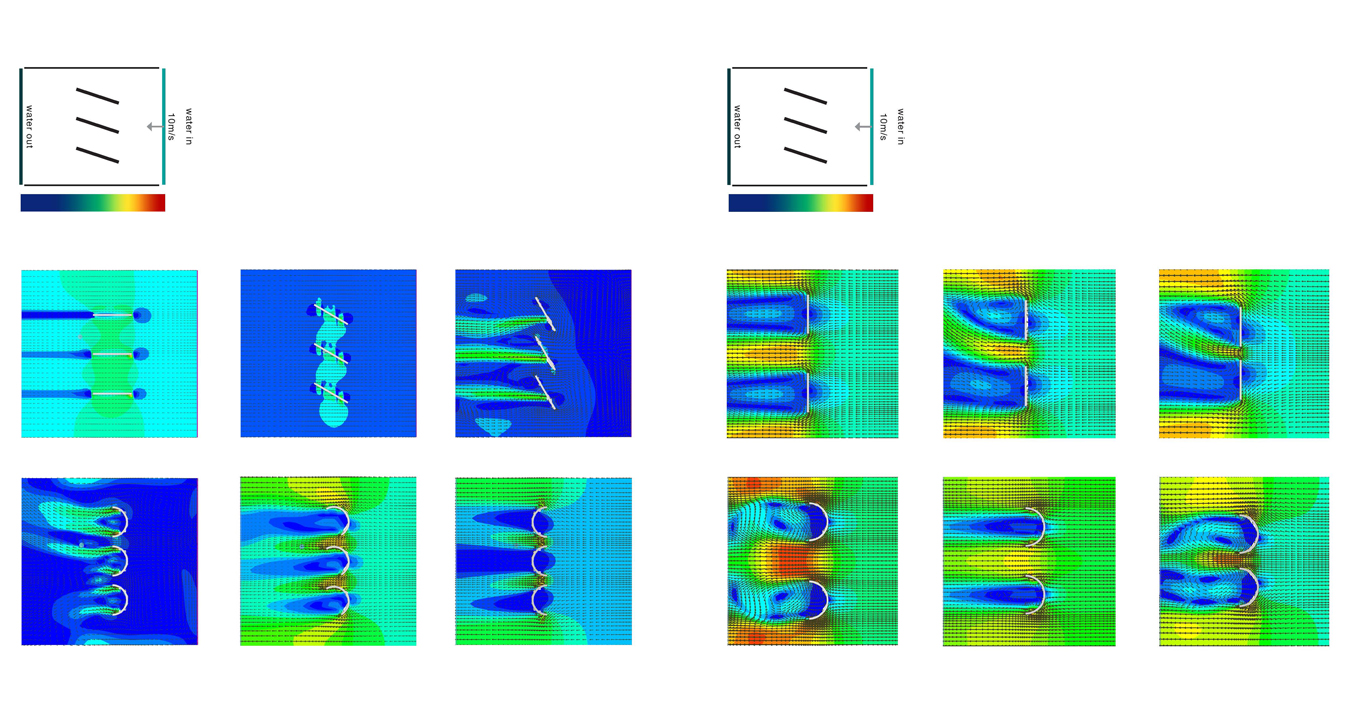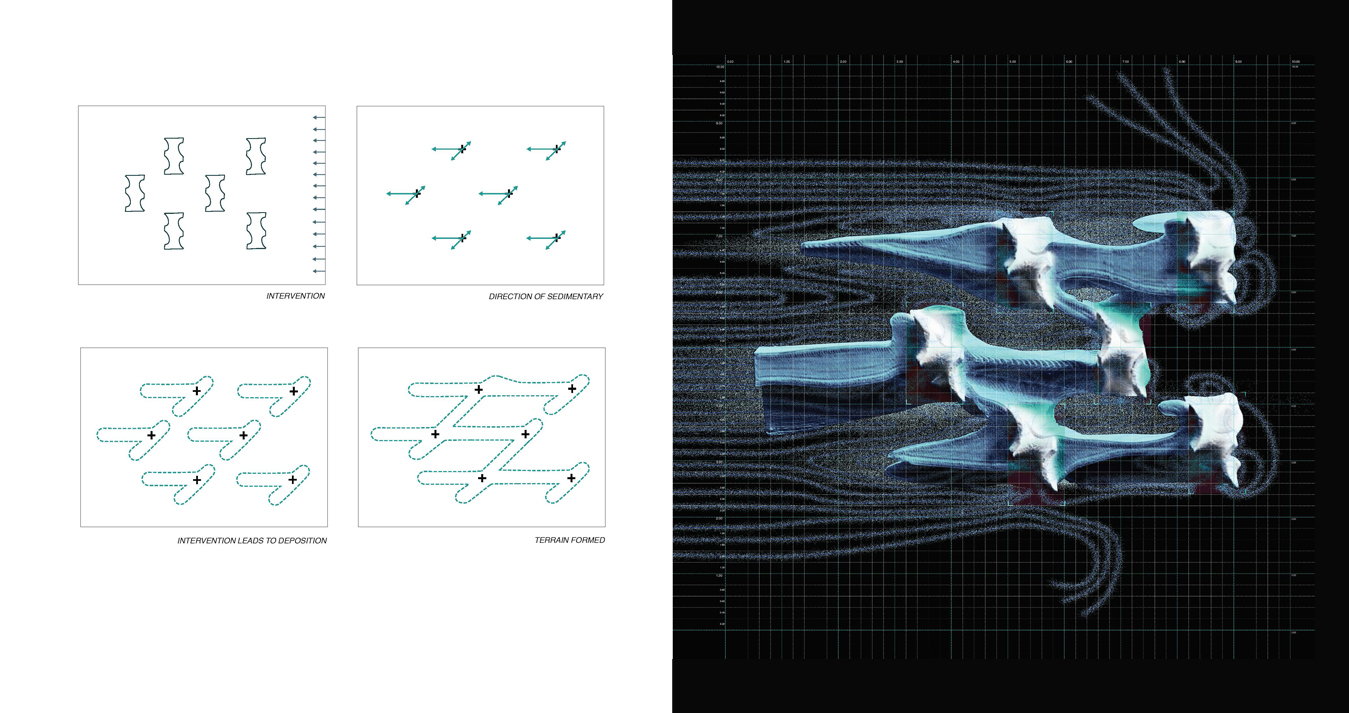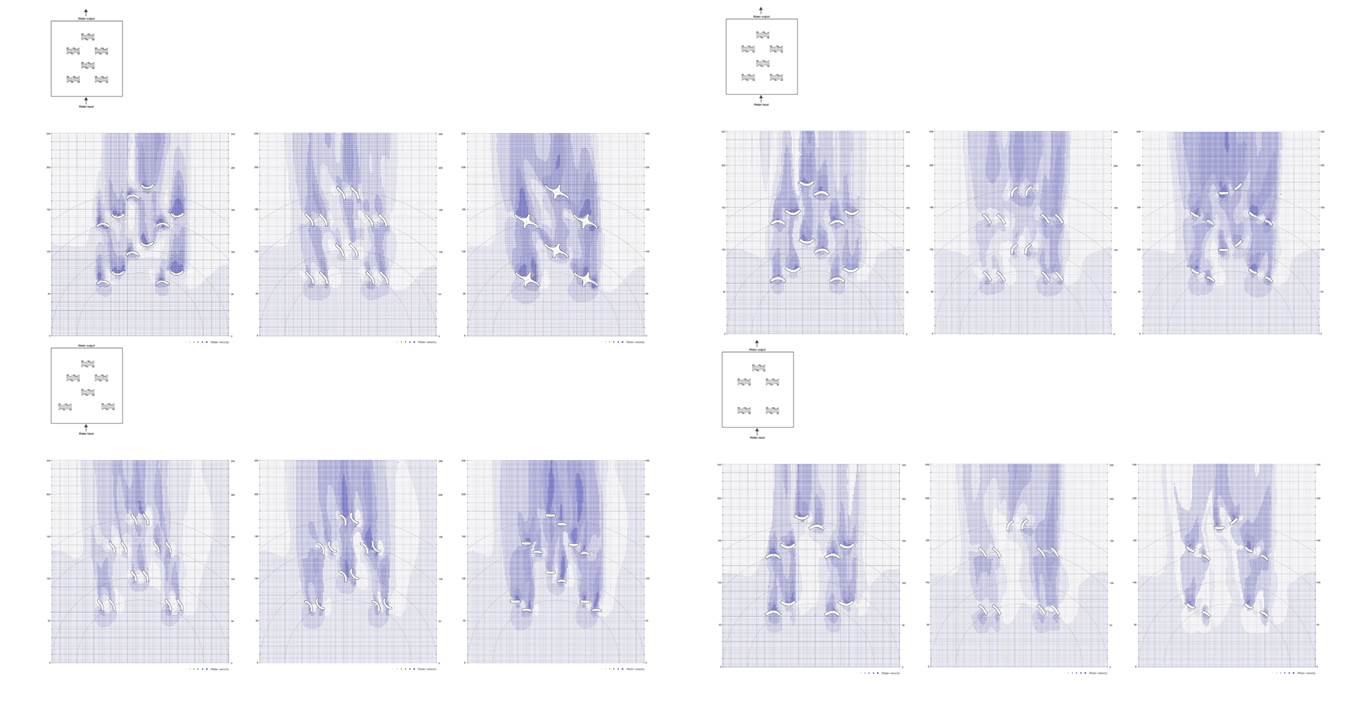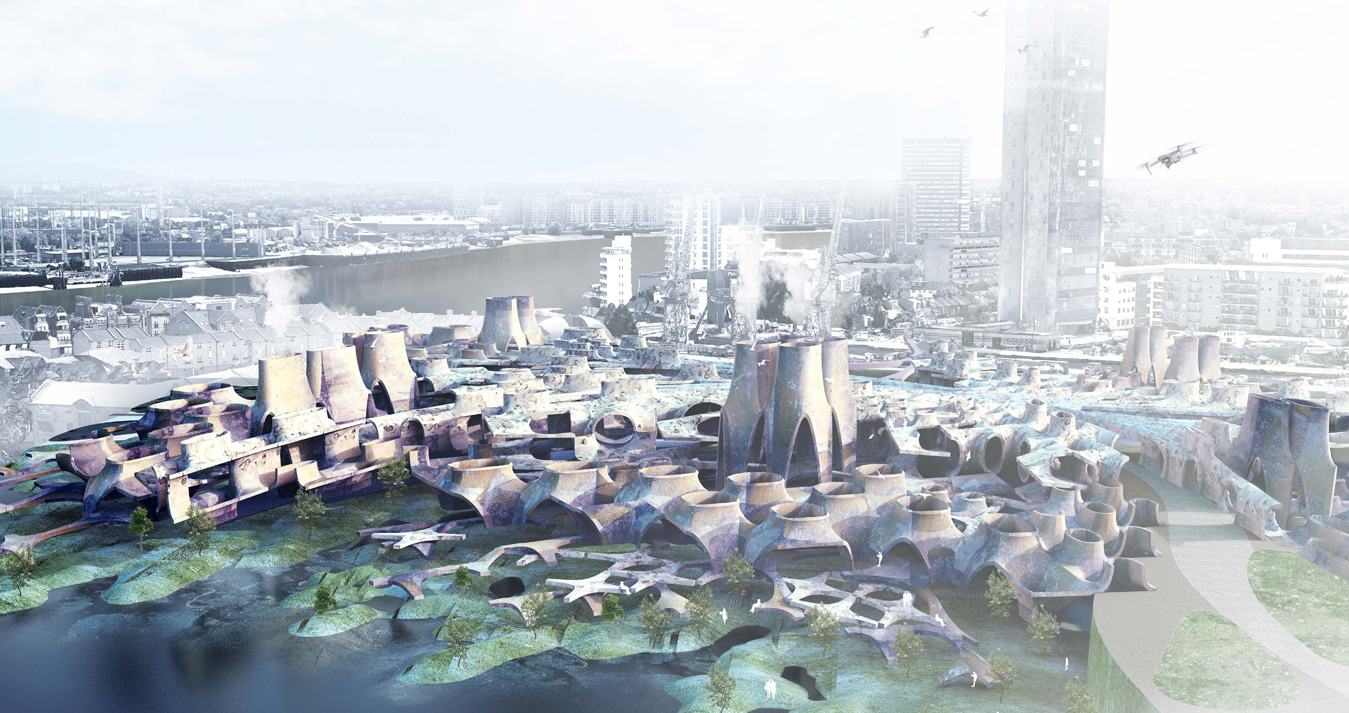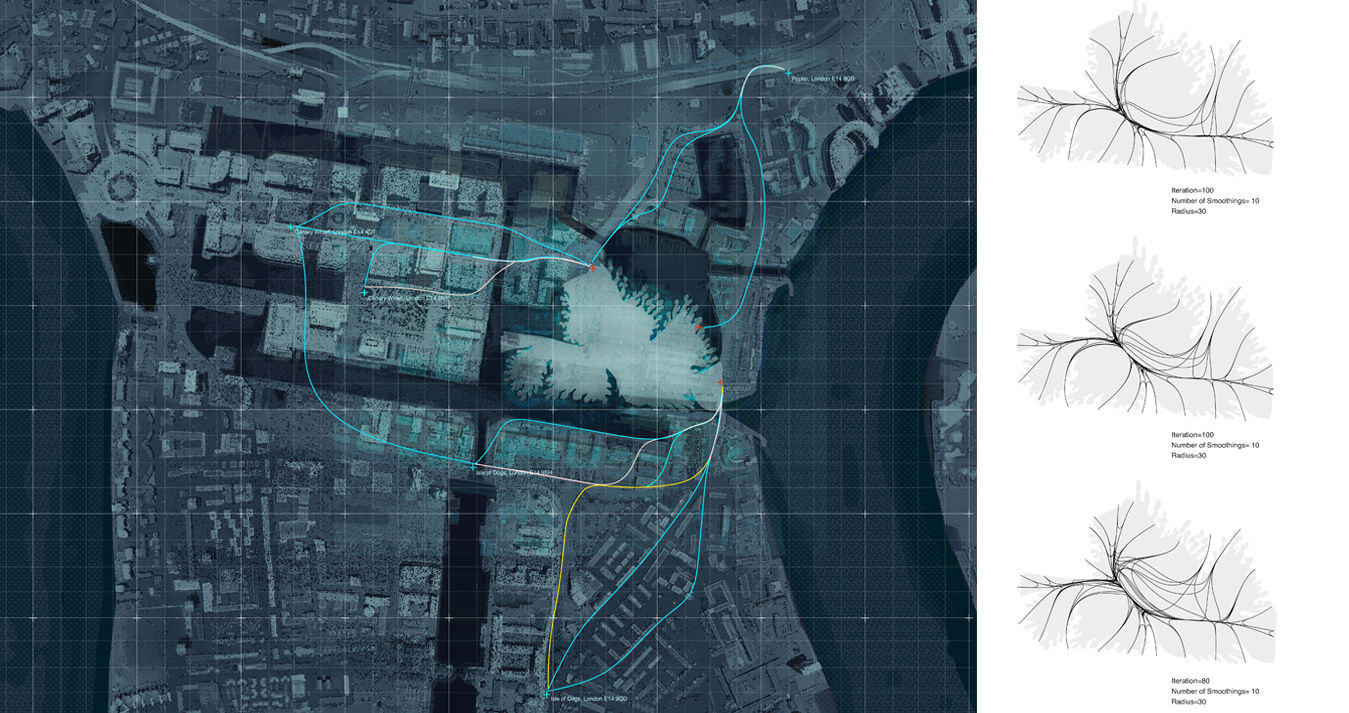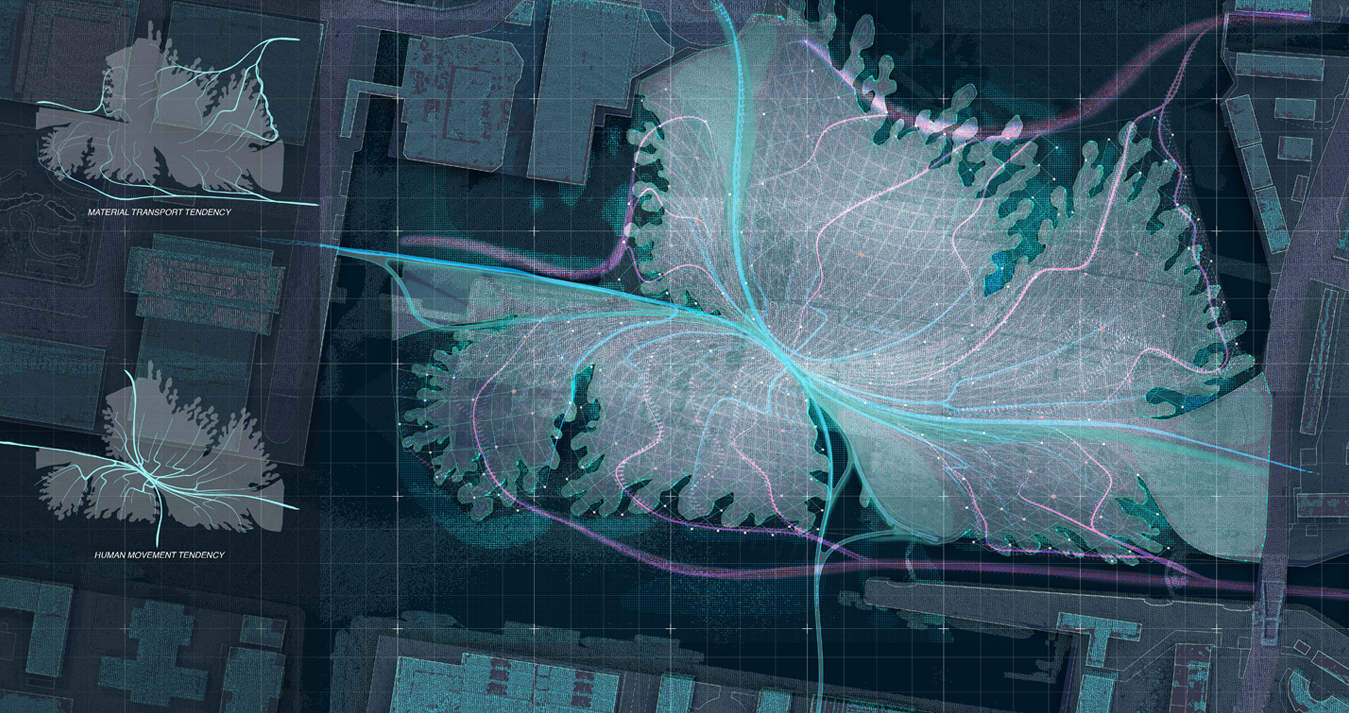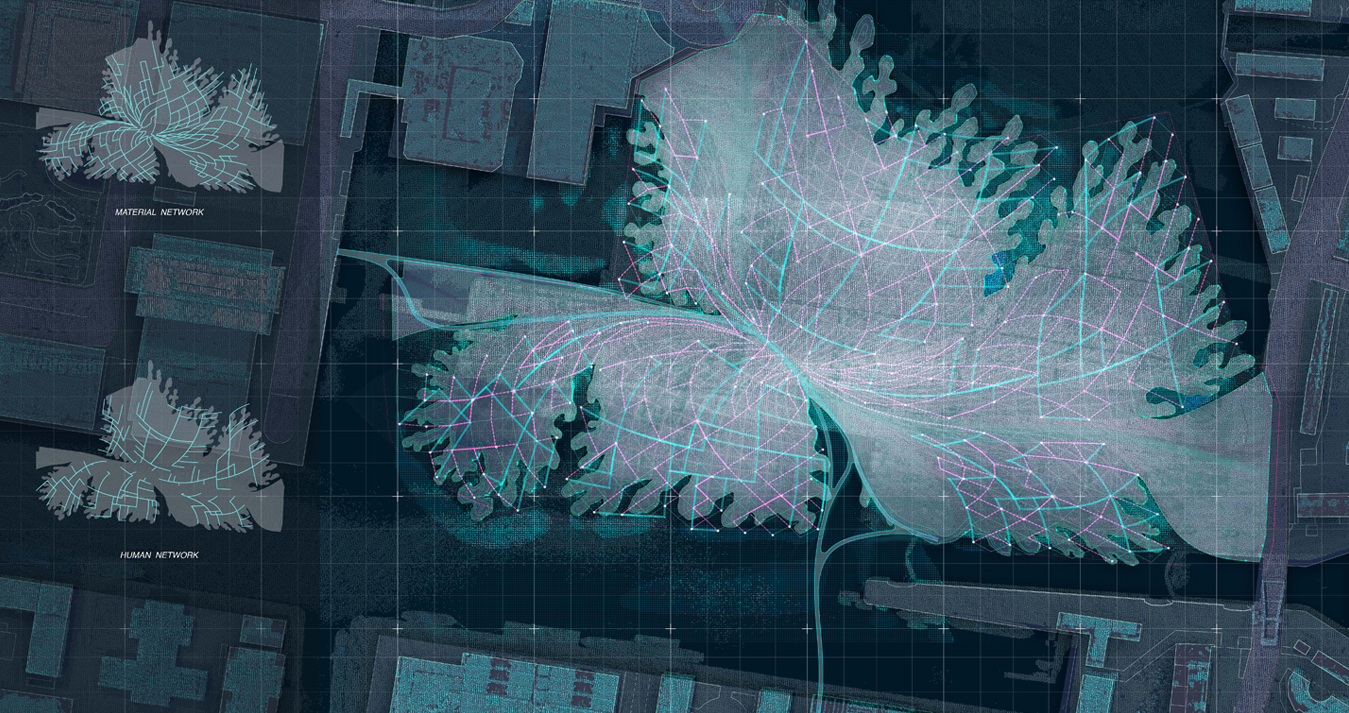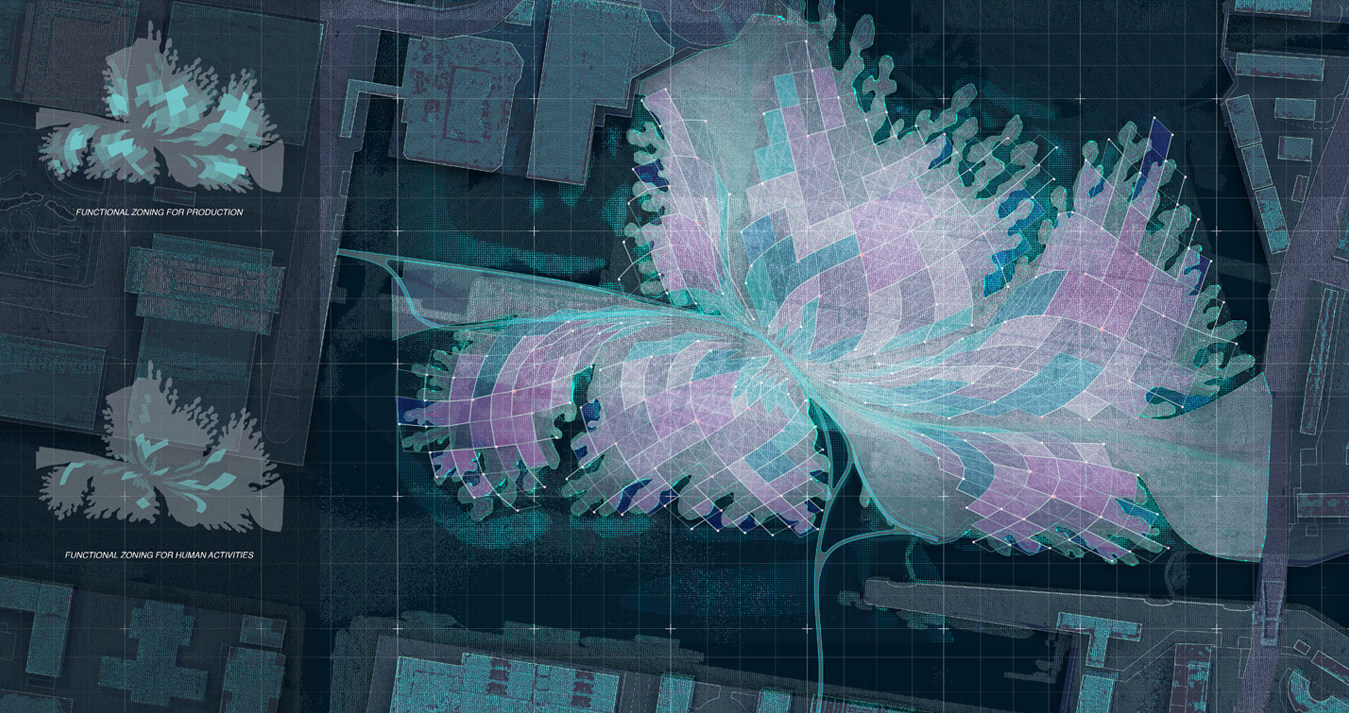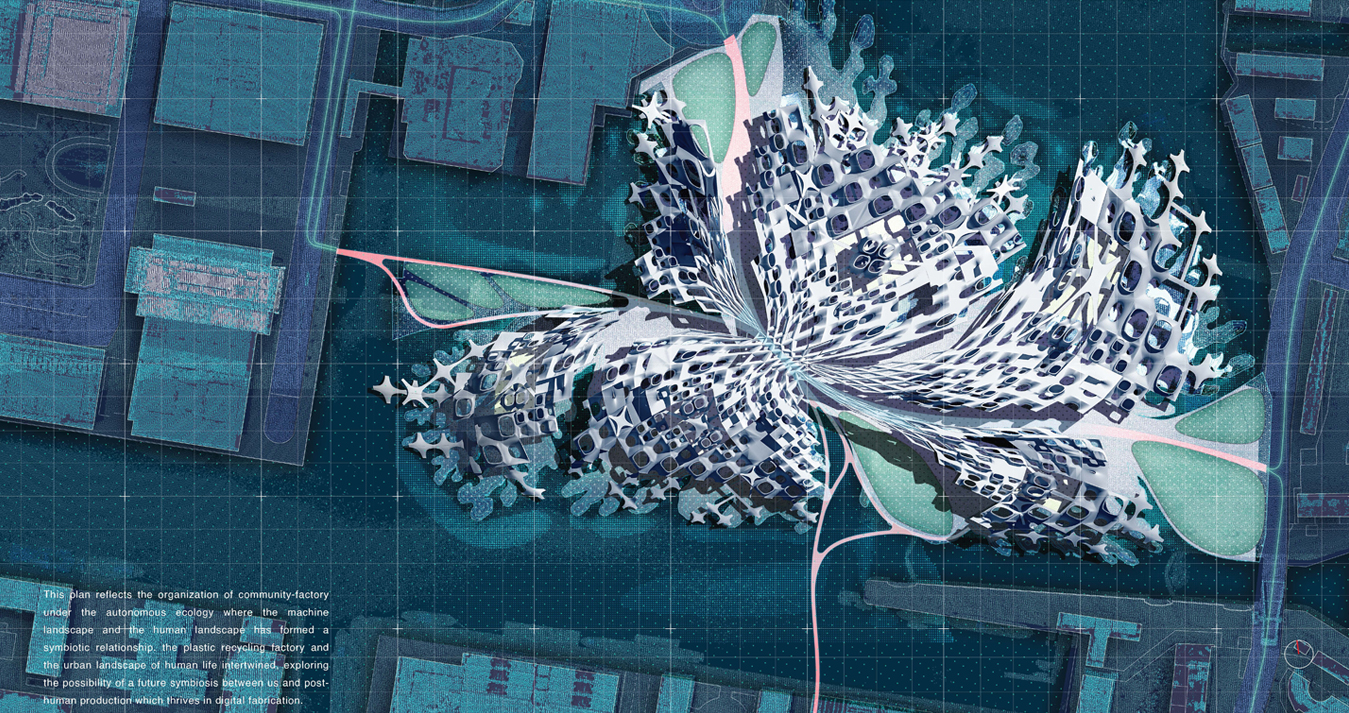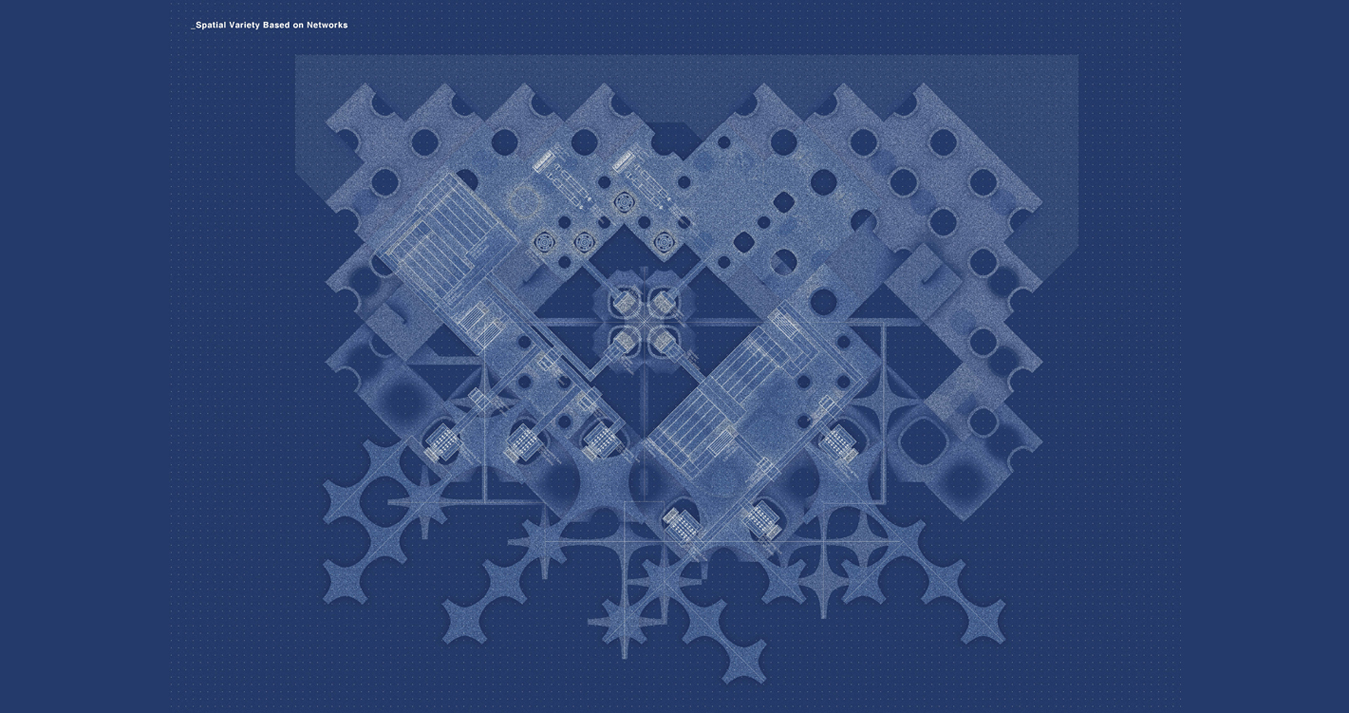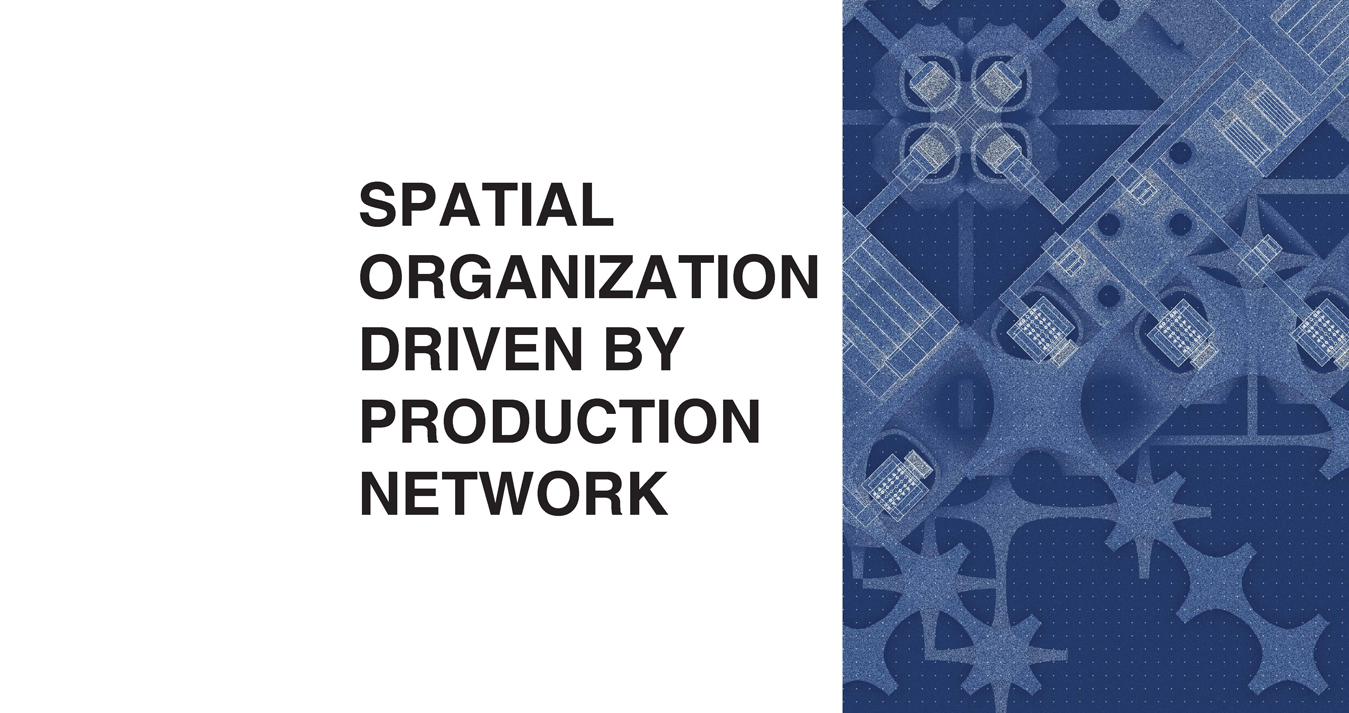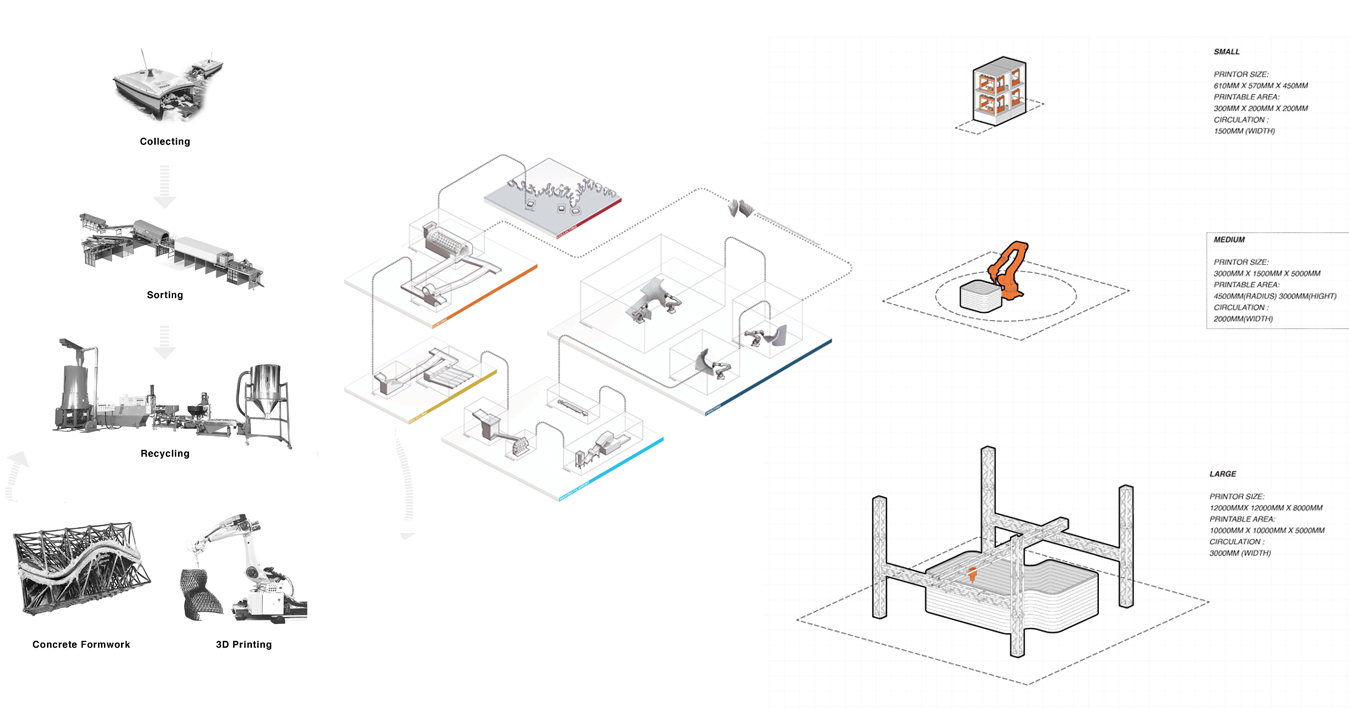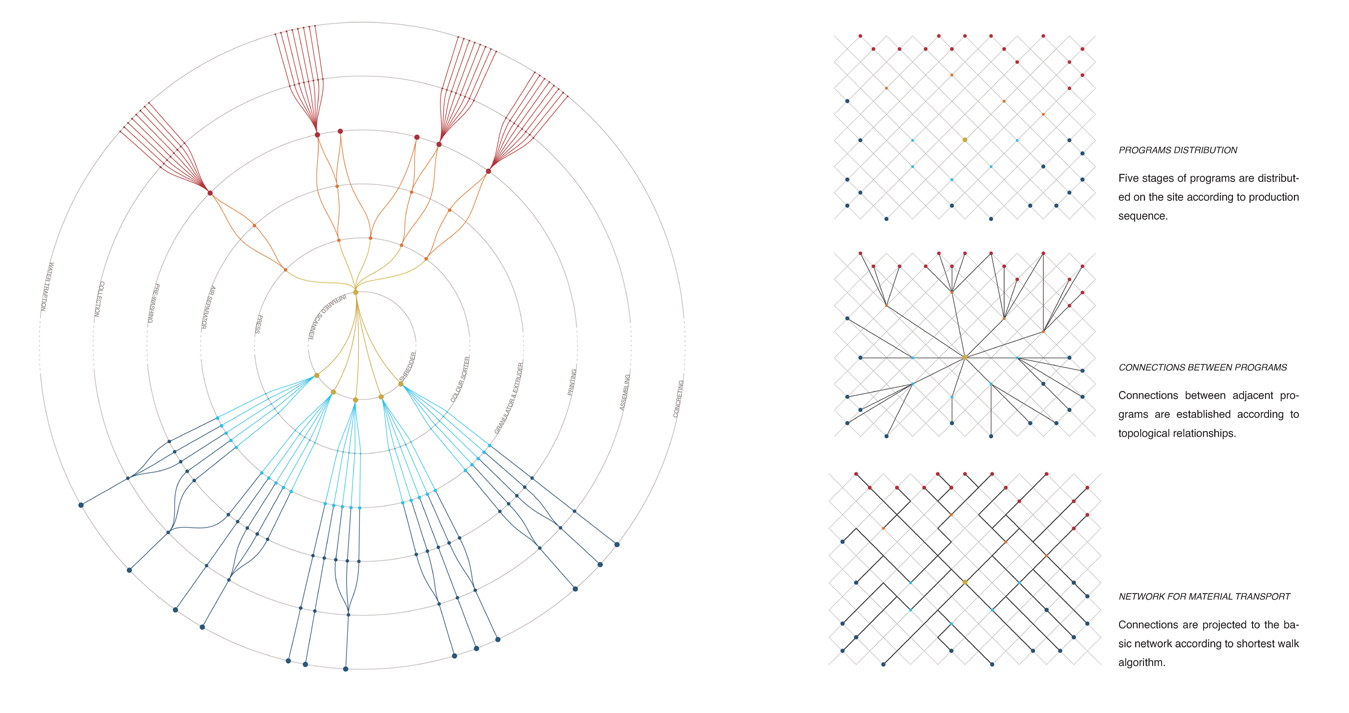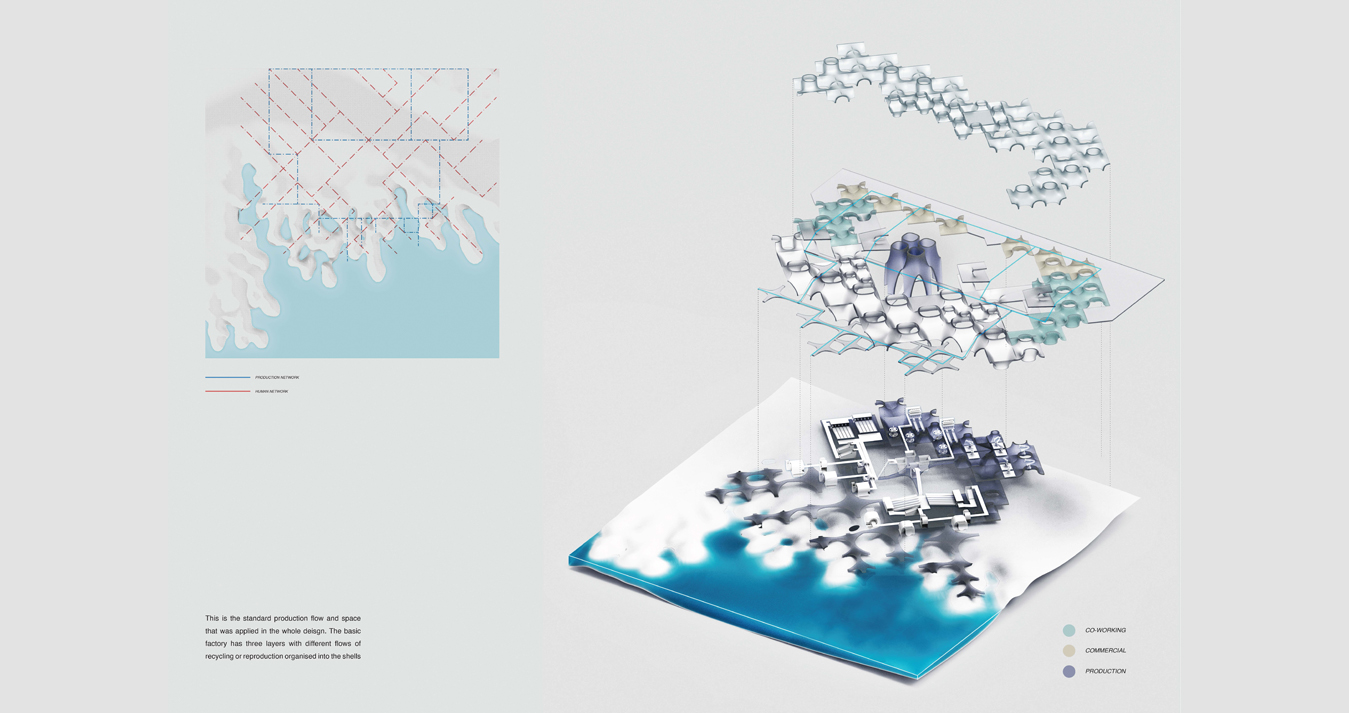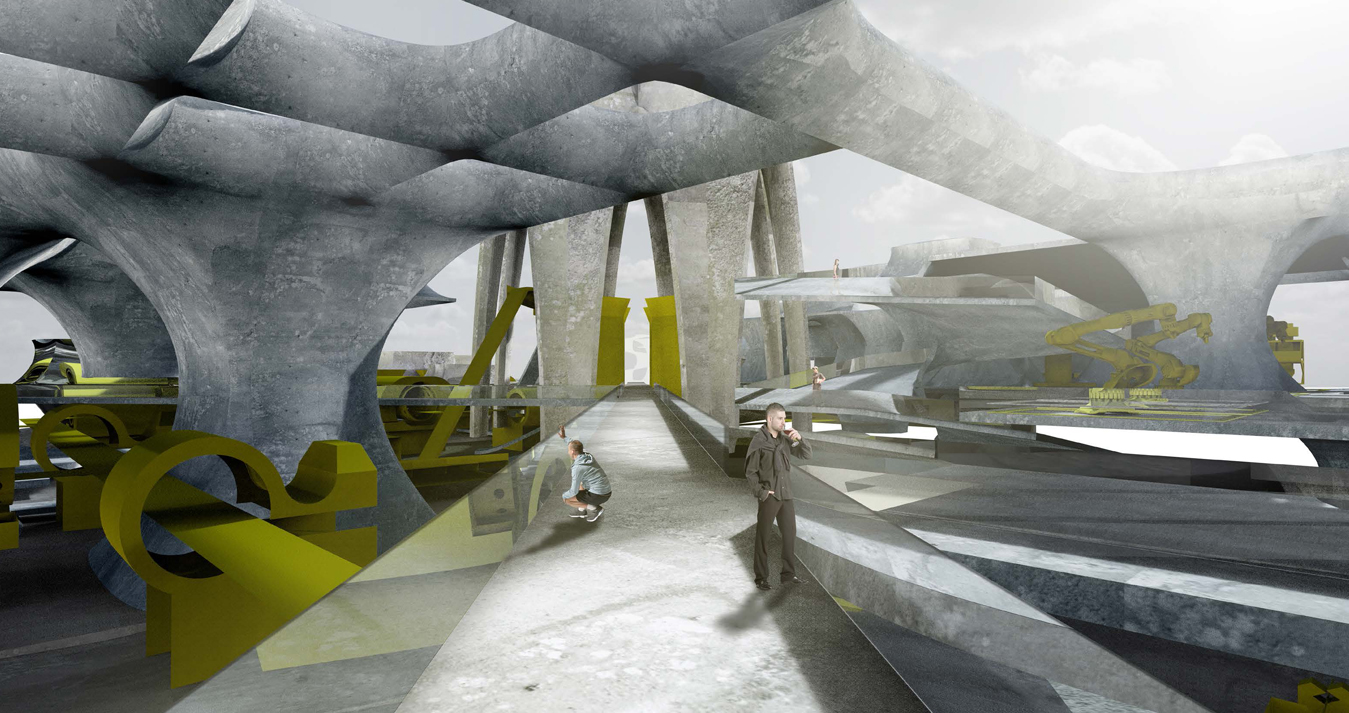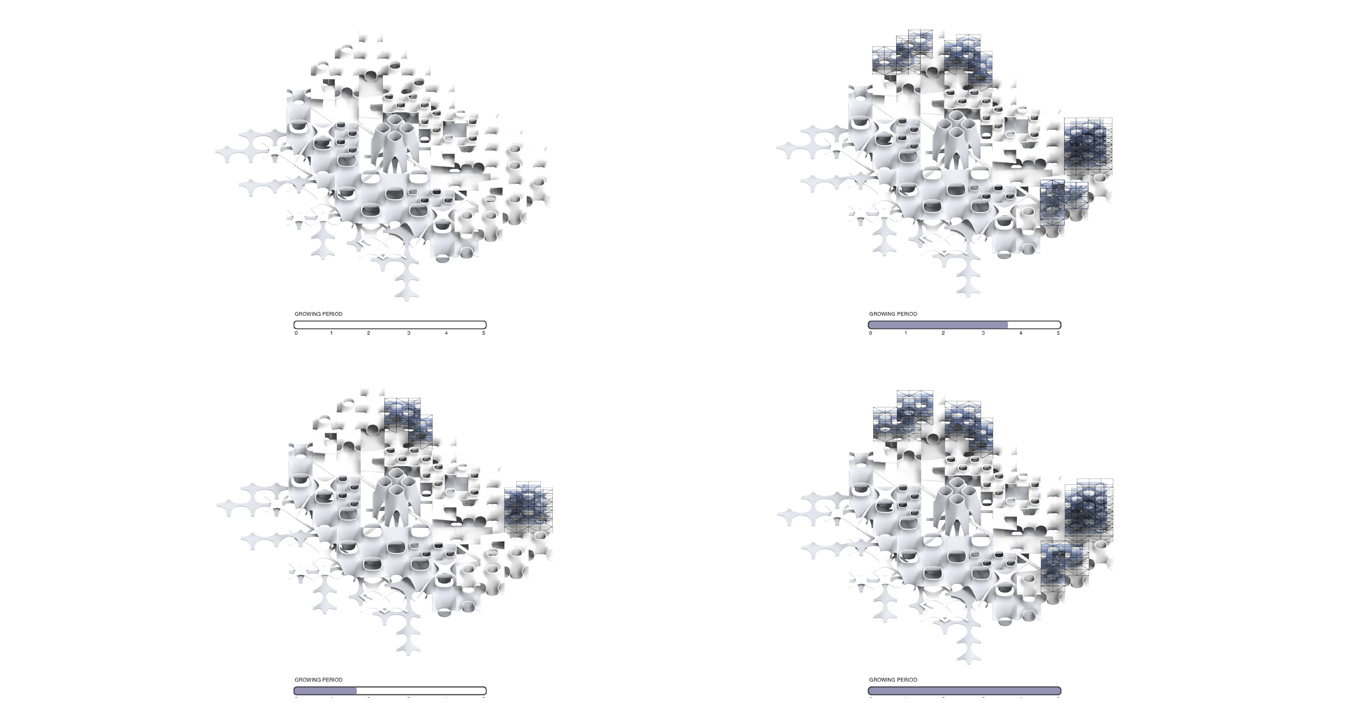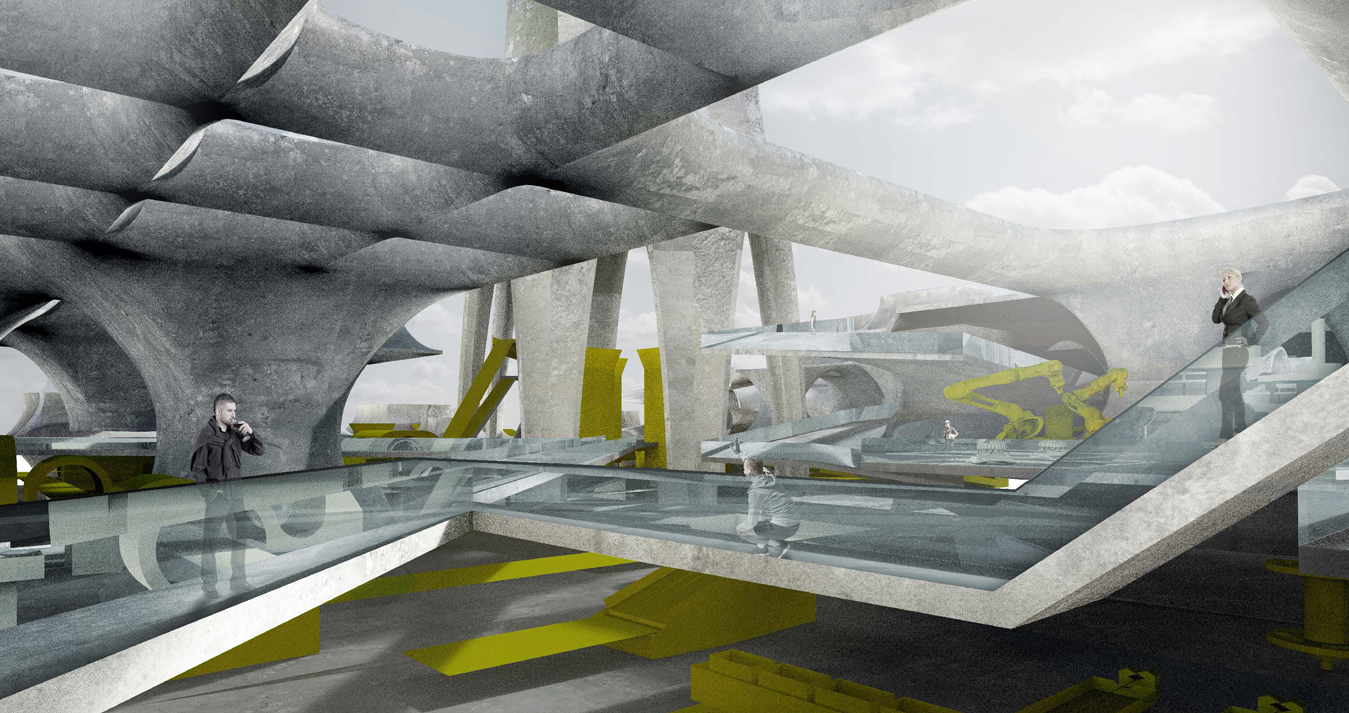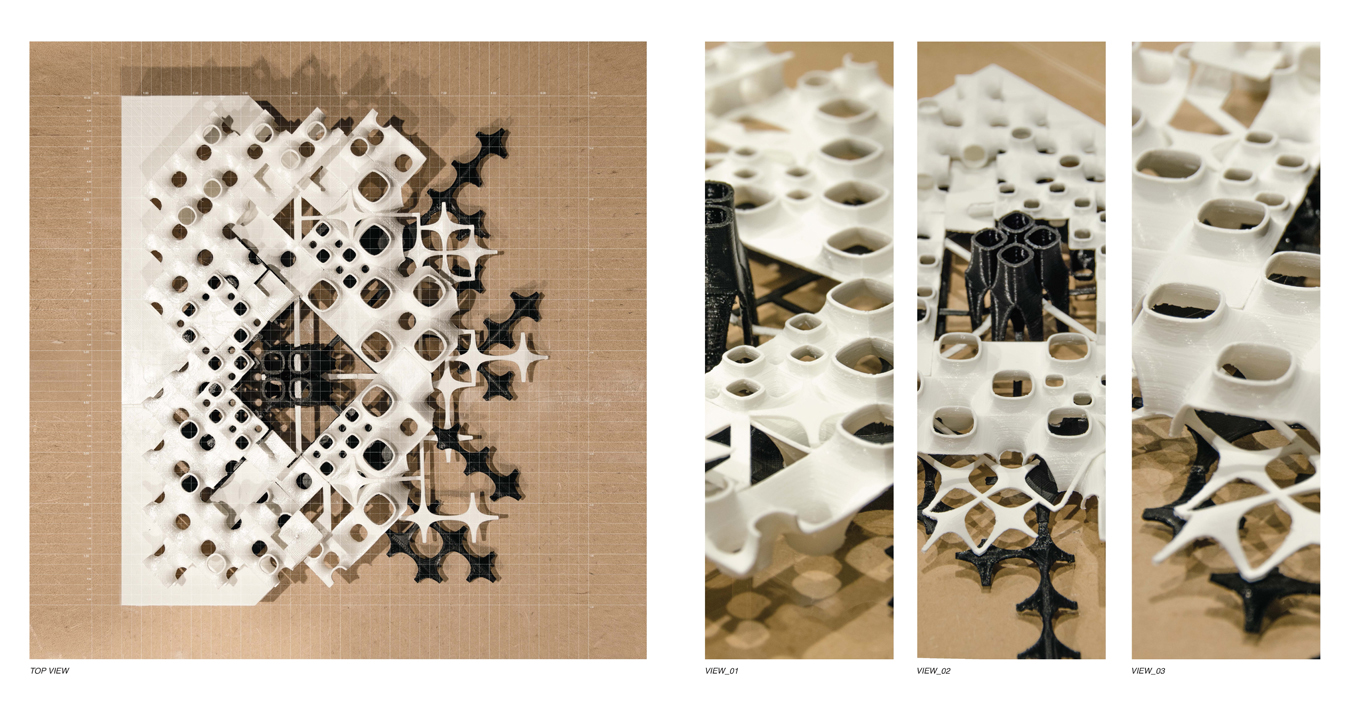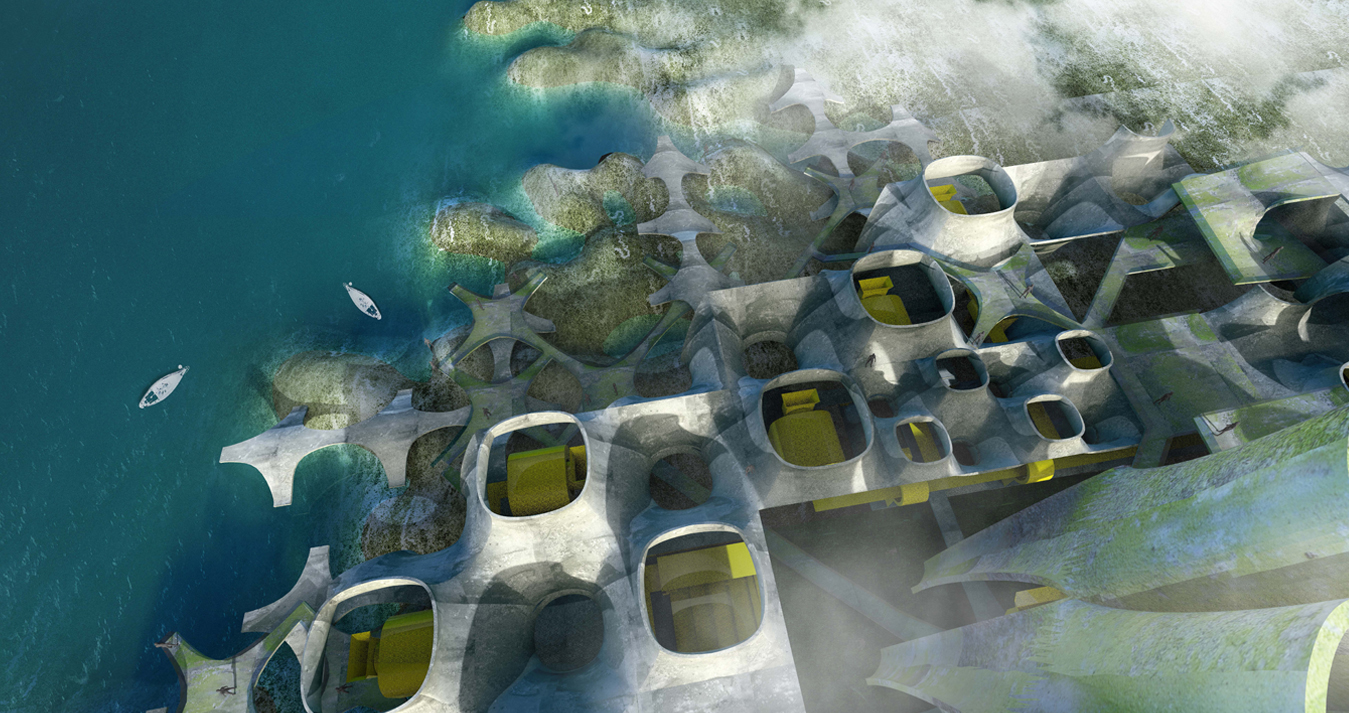Autonomous Ecology
Autonomous Ecology reflects on the distressing phenomenon of machine landscapes. Intensive farming, resource mining, international transport nodes and logistics centres are among the many machine programs where there is little trace of human presence. Situated outside the eye of the cultural production of cities; they are the bones, flesh and blood that fuels planetarization. They source human existence but are only seen through the lenses of satellite technologies. This uncomfortable reality, out of the eye of contemporary cultural systems, induces an increasing alienation between humans and the infrastructures that support them.
The project challenges this scenario proposing a machine landscape adjacent to Canary Wharf, one of the two financial centres in London. This machine landscape is dedicated to mine a precious resource, London Waste. Specifically, it is dedicated to mine tones of plastic bottles that are currently flushed into the ocean through the river Thames. This new waste mine, a radical machine landscape, is designed to keep humans on the roof top. Outside of the operational space of machines, humans can witness the hectic going back and forth of machines’ attempt keep up with humans’ careless disposals. The project aims to challenge the meaning of public space, iconicity and centrality. Its hyper realistic aesthetic reflects on the material processes involving machine landscapes; opening a scenario where automation and digital fabrication reformulates future ecologies.
TEXT by Enriqueta Llabres
- [Category] MArch Design Thesis
- [Institution] BPro RC18. Bartlett School of Architecture
- [year] 2019-2020
- [Leaders] Enriqueta Llabres and Zach Fluker
- [Students] Yuxiang Gao, Jialin Xu, Yitian Zhang, Jianan Zhang
- [Tutors] Dimitra Bra, Maria Paneta, Martyn Carter, Sheng-Yang Huang, Mohammed Makki and Milad Showkatbakhsh Ilaria Di Carlo
- [Partners] RhinoCFD, Wallace
Autonomous Ecology
Autonomous Ecology reflects on the distressing phenomenon of machine landscapes. Intensive farming, resource mining, international transport nodes and logistics centres are among the many machine programs where there is little trace of human presence. Situated outside the eye of the cultural production of cities; they are the bones, flesh and blood that fuels planetarization. They source human existence but are only seen through the lenses of satellite technologies. This uncomfortable reality, out of the eye of contemporary cultural systems, induces an increasing alienation between humans and the infrastructures that support them.
The project challenges this scenario proposing a machine landscape adjacent to Canary Wharf, one of the two financial centres in London. This machine landscape is dedicated to mine a precious resource, London Waste. Specifically, it is dedicated to mine tones of plastic bottles that are currently flushed into the ocean through the river Thames. This new waste mine, a radical machine landscape, is designed to keep humans on the roof top. Outside of the operational space of machines, humans can witness the hectic going back and forth of machines’ attempt keep up with humans’ careless disposals. The project aims to challenge the meaning of public space, iconicity and centrality. Its hyper realistic aesthetic reflects on the material processes involving machine landscapes; opening a scenario where automation and digital fabrication reformulates future ecologies.
TEXT by Enriqueta Llabres


